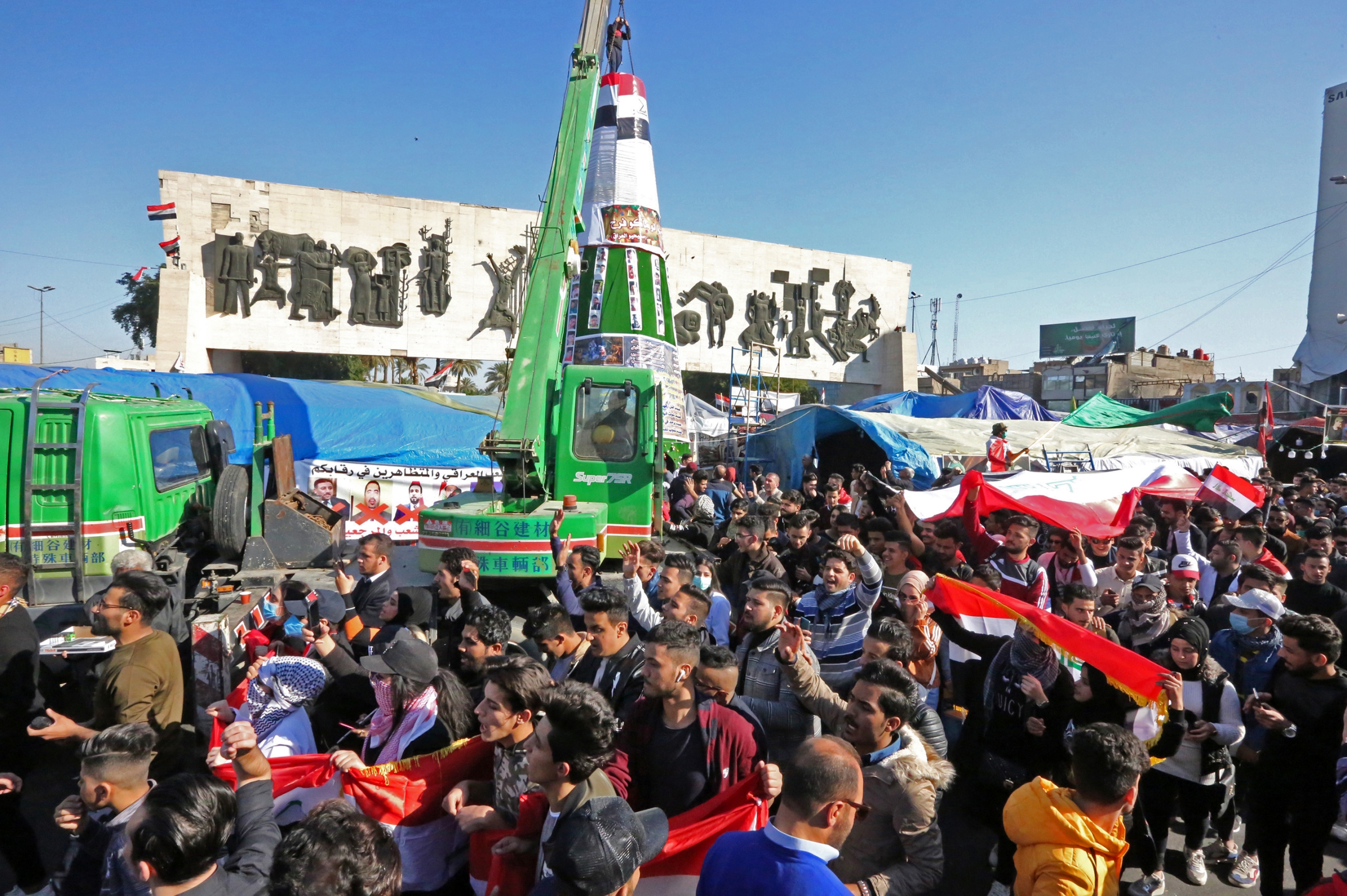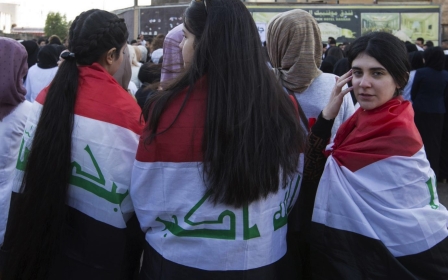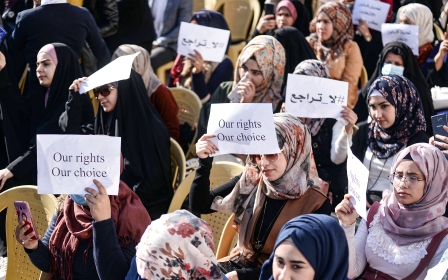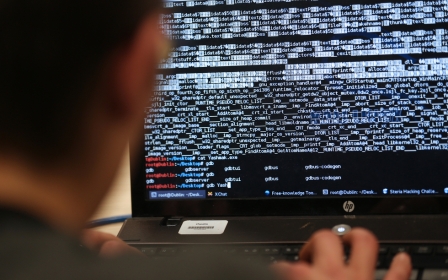Iraqi parliament passes long-demanded electoral reform law

Iraq's parliament has approved a new electoral law after months of deadlock, fulfilling one of the main demands of the country's ongoing protest movement.
Demonstrations have gripped Iraq since October with protesters calling for a total overhaul of the country's political system, installed in 2003 after the overthrow of Saddam Hussein by the US-led coalition.
The new election law will allow voters to elect individual candidates instead of choosing from party lists, and have each member of parliament represent a specific electoral district instead of groups of legislators representing entire provinces.
"In the name of Iraq, and in the name of the Iraqi people, in the name of the martyrs, in the name of all those who sacrificed, in the name of the displaced, the law has been approved," Council of Representatives Speaker Mohammed al-Halbousi said after the vote.
Protesters have demanded not just a new electoral law, but also the removal of the entire ruling elite seen as enriching itself off the state and serving foreign powers - above all Iran - as many Iraqis languish in poverty without jobs, healthcare or education, and an independent premier with no party affiliation.
New MEE newsletter: Jerusalem Dispatch
Sign up to get the latest insights and analysis on Israel-Palestine, alongside Turkey Unpacked and other MEE newsletters
Since 2003, power has been shared along ethno-sectarian lines among parties from Iraq's largest three communities.
The most powerful post, that of prime minister is held by a Shia Arab, the speaker of parliament by a Sunni Arab and the presidency by a Kurd.
"We call on all politicians who came after 2003 to leave government and hand over power. All politicians with loyalties to Iran or to Gulf countries need to go. We need a true Iraqi, someone honest and honourable," said Hashim Mohammed.
"They dragged Iraq into rock bottom, those traitors who came after 2003."
Infighting between political parties who are clinging on to power has fuelled the crisis and threatens to cause more unrest as protesters lose patience with a deadlock in parliament that is holding up the selection of an interim prime minister.
Prime Minister Adel Abdul Mahdi resigned last month under pressure from the street demonstrations, but has remained in office in a caretaker capacity. The constitutional deadline to name a replacement expired on Thursday.
Two blocs of political parties, one backed by Iran and the other populist and anti-Iranian, are closely involved in backroom deals to agree on a candidate.
Any agreement on thorny political issues looks unlikely. The protests have shaken the country out of two years of relative calm following the defeat of Islamic State militants.
Middle East Eye delivers independent and unrivalled coverage and analysis of the Middle East, North Africa and beyond. To learn more about republishing this content and the associated fees, please fill out this form. More about MEE can be found here.





